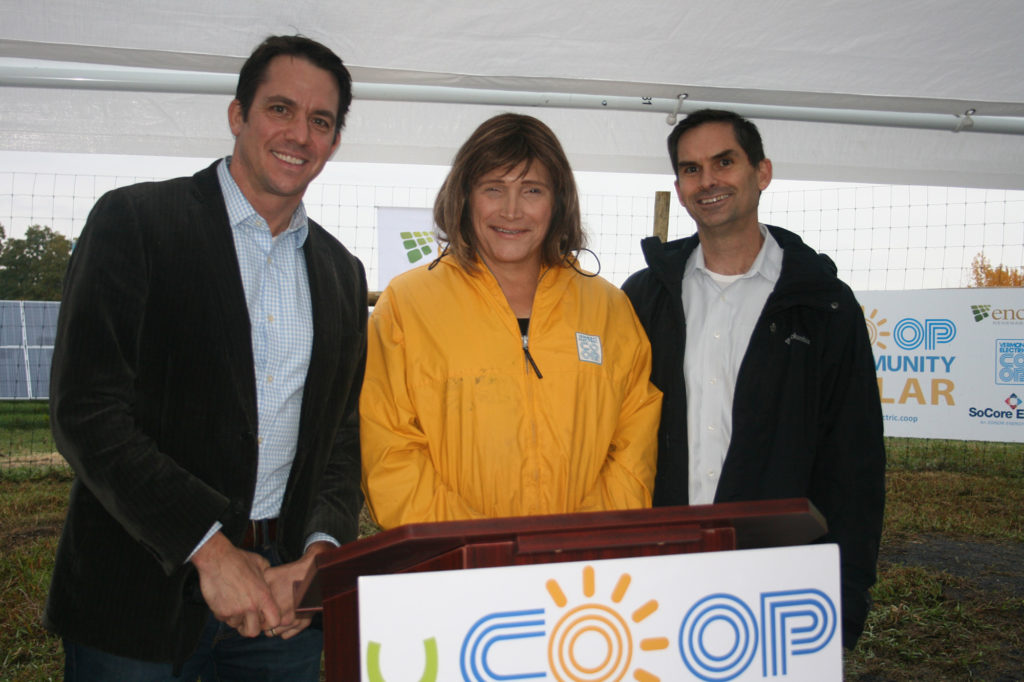
Eyeing a bright future in public service, Christine Hallquist is ending her successful electric cooperative career in Vermont to run for governor of the Green Mountain State.
“The values of cooperation among cooperatives and concern for community are a great basis for leadership at the state level,” said Hallquist, who resigned March 2 as Vermont Electric Cooperative CEO. “The power of people who want to do good, working together, is more powerful than their individual skills.”
Hallquist arrived in Johnson, Vermont, in 2000, to help stabilize a co-op in trouble. She brought a background in process engineering honed at leading IT companies and decades of consulting for top manufacturers.
After the co-op acquired the assets of a larger investor-owned utility, Hallquist’s role in engineering operations expanded to CEO in 2005.
“Financially, we were near ‘junk bond’ status, and the state was considering pulling our certificate of public good,” Hallquist recalled.
Today, Vermont EC’s bond ratings are solid, and the co-op has not had a rate increase in more than four years. VEC meets 96 percent of its energy needs from carbon-free sources and is nearly in compliance with the state’s 100 percent renewable mandate for 2050.
“Christine has done a tremendous job leading the organization through complex times in the electric utility industry and is leaving the co-op on firm footing,” said Dan Carswell, chair of the VEC board. The CEO’s position is being filled on an interim basis by Vickie Brown, the co-op’s general counsel.
Hallquist has spent a lot of time with the nearly 40,000 members of VEC who live in nine counties in northern and central Vermont. She’s now seeking the Democratic nomination in the state’s Aug. 14 gubernatorial primaries. Hallquist faces at least two primary opponents, James Ehlers and Ethan Sonneborn.
Republican Gov. Phil Scott has not declared his intention to seek a second term, but at least one candidate, Keith Stern, has filed for the GOP gubernatorial primary.
Hallquist has been active in NRECA affairs throughout her co-op career, serving on technical advisory panels and supporting the organization’s grass-roots programs in Vermont and Washington.
“Political engagement and the idea of service to others have been hallmarks of the electric cooperative program since our inception,” said Kirk Johnson, NRECA’s senior vice president, government relations.
“It’s no surprise that we’ve had former co-op leaders make the transition from private service to public service by being elected to serve in state legislatures, the U.S. House, and the U.S. Senate,” Johnson added. “Co-ops are good breeding grounds for leaders at the local, state, and federal level because we know what it means to make a difference in our communities.”
Hallquist has broad name recognition in Vermont built on her activism on behalf of environmental, health care, technology and public safety issues.
Derrill E. Holly is a staff writer at NRECA.